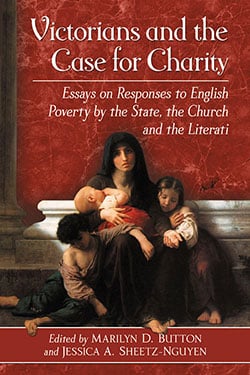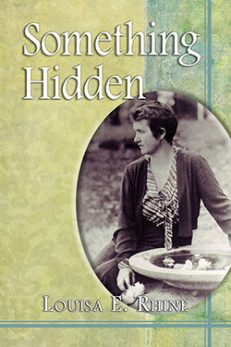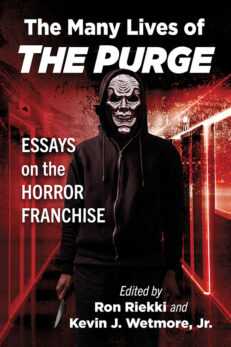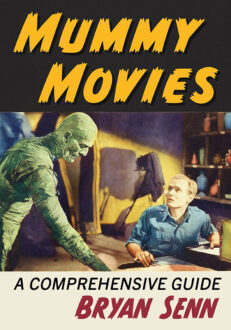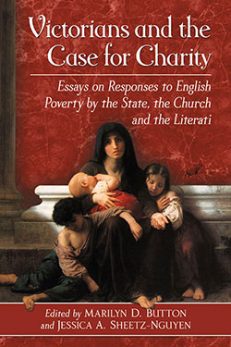Victorians and the Case for Charity
Essays on Responses to English Poverty by the State, the Church and the Literati
$39.95
In stock
About the Book
This collection of all new essays seeks to answer a series of questions surrounding the Victorian response to poverty in Britain. In short, what did various layers of society say the poor deserved and what did they do to help them? The work is organized against the backdrop of the 1834 New Poor Laws, recognizing that poverty garnered considerable attention in England because of its pervasive and painful presence. Each essay examines a different initiative to help the poor.
Taking an historical tack, the essayists begin with the royal perspective and move into the responses of Church of England members, Evangelicals, and Roman Catholics; the social engagement of the literati is discussed as well. This collection reflects the real, monetary, spiritual and emotional investments of individuals, public institutions, private charities, and religious groups who struggled to address the needs of the poor.
About the Author(s)
Bibliographic Details
Edited by Marilyn D. Button and Jessica A. Sheetz-Nguyen
Format: softcover (6 x 9)
Pages: 280
Bibliographic Info: notes, bibliographies, index
Copyright Date: 2014
pISBN: 978-0-7864-7032-7
eISBN: 978-1-4766-0586-9
Imprint: McFarland
Table of Contents
Table of Contents
Acknowledgments v
Preface 1
Introduction: “Injurious Charity” (Marilyn D. Button and Jessica A. Sheetz-Nguyen) 5
Part One: State Response
The Case for Charity: “But if I were you, I should certainly go into the workhouse” (Jessica A. Sheetz-Nguyen) 21
Royal Charity and Queen Adelaide in Early Nineteenth Century Britain (Marilyn K. Thomas) 42
Lloyd’s Patriotic Fund, 1791–1841: “To the Heroes of Trafalgar” (Jessica A. Sheetz-Nguyen) 58
Part Two: Anglican Response
Rhetoric, Education and Economics as Practical Theology: Archbishop Richard Whately’s Irish Policies (Carol Poster) 77
Fundraising Theology? Anglican Charity Sermons and Nineteenth-Century Social Causes (Keith A. Francis) 94
Part Three: Literati Response
“The Cry of the Children”: Elizabeth Barrett’s Response to Child Labor in the Mines and Factories of Victorian Britain (Mary B. McElligott) 121
“No friend like a sister”: Christina Rossetti’s “Awakened Conscience” and the Fallen Woman (Renée J. Schlueter) 142
Part Four: Evangelical Response
A Sisterhood Powerful for Motherhood: Ellen Ranyard’s “Biblewomen” and “Biblewomen Nurses” (Donald M. Lewis) 159
Protecting Canterbury’s Poor: City Missions and the Protestant Laity (Marilyn D. Button) 184
Oxford for Factory Workers: The People’s College of Sheffield (Angela M. Schwer) 200
Part Five: Roman Catholic Response
“Father of the orphan, his helper and his judge”: Roman Catholic Response to the English Poor Law System (Jessica A. Sheetz-Nguyen) 225
“Something for the Poor”: London Women Religious and Social Reform in the 1840s (Moira E. Egan) 249
Epilogue 263
About the Contributors 265
Index 267
Book Reviews & Awards
“a fine contribution to social history…highly recommended”—Choice: “This is a fascinating and often moving study of how Victorian poverty was experienced, how Victorian charity was practiced, and how Victorian religion was lived. Its solid scholarship contributes to a topic historians need to rediscover.”—Dr. Jonathan Rose, Drew University (New Jersey); “Victorians and the Case for Charity: Essays on Responses to English Poverty by the State, the Church and the Literati, edited by Marilyn D. Button and Jessica A. Sheetz-Nguyen, is a monumental accomplishment. Their collaboration illumines the idealism and energy of the Victorian era as it sought to meet the crushing needs of the impoverished. The heroes and heroines of this bygone era come to life as they courageously implement ways and means to better the sufferings of the poor who lived on the dark side of the industrial revolution. The roots of contemporary efforts to assist the needy in terms of health, education, moral training and spiritual hope are clearly seen and inspire the reader to investigate and perhaps emulate their altruism.”—Dr. Peter A. Lillback, President, Westminster Theological Seminary, Philadelphia.

